Civil Liberties, Civil Rights, Criminalizing Dissent, Freedom Of Speech, Gaza, genocide, Human Rights, War Resister
Podcast: Play in new window | Download
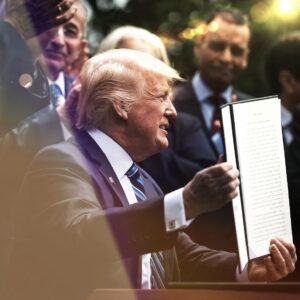
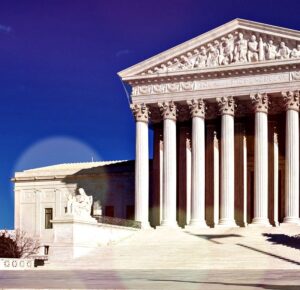
Federal Court Challenges to Trump Administration Arguments
The number of active lawsuits in federal courts challenging Trump administration arguments has now topped 100. In 21 of those cases, judges have already issued temporary restraining orders or preliminary injunctions, effectively stopping, at least for now, parts of Trump’s agenda.
For example, as reported in the New York Times this past Sunday, trial court judges have blocked for now Trump’s mass firings of civil servants, Musk’s access to sensitive federal agency data, the relocation of transgendered women inmates to men’s prisons, the pursuit of immigrants inside houses of worship, and the freezing of up to $3 trillion of federal funding to the states. And in a very important case, a federal judge entered a final judgment reinstating the head of the federal watchdog agency. And just yesterday, the Supreme Court ruled against the Trump Administration halting the sending out of those billions of foreign aid dollars.
But it must be pointed out that in a number of preliminary victories against Trump’s actions, the government, though losing the first round in the case, have nevertheless stalled in obeying the court’s orders. And Trump, himself, posted the absolutist notion that, “He who saves his Country does not violate any Law.”
Five of the judges who have ruled against Trump were appointed by Republican presidents, one by Trump himself. As a result of Trump’s losing record in court cases so far, there is now talk on the right of seeking to impeach judges who rule against the Trump Administration. And the number of death threats judges are experiencing from the public have gone up alarmingly, as well.
Guest – Stephen Rohde is a civil rights activist, author, and constitutional scholar. He practiced civil rights law for almost 50 years. He currently serves as chair of the Interfaith Communities United for Justice and Peace (aka ICUJP), which was formed in the wake of 9/11 for the purpose of organizing faith-based communities to call for an end to war and violence. He is also a past President of the ACLU Foundation of Southern California, and past Chair of Death Penalty Focus, and Bend the Arc: A Jewish Partnership for Justice. Despite that long list of affiliations, today he’s not speaking on behalf of any of those organizations.
—-

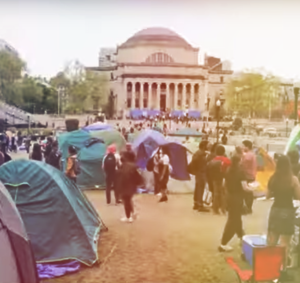
Free Speech Protections Threatened Under Trump Administration
On March 4, 2025, President Donald Trump threatened to cut federal funding to colleges that permit what he calls “illegal protests.” This statement on social media has sparked a wave of reactions from civil rights groups as a direct attack on fundamental freedoms such as speech and assembly.
In his post, Trump echoed ideas from previous executive orders, including his 2019 order and one issued in January, which specifically targeted pro-Palestinian student protests on college campuses, calling them antisemitic. But Trump’s latest comments go further, asserting that any protest deemed illegal would lead to harsh consequences, including the imprisonment of agitators and expulsion or arrest of American students. The details, however, remain unclear, particularly around how the government would define “illegal protests” or the enforcement of such measures.
Trump’s latest threat has reignited concerns about the balance between freedom of speech and government intervention on college campuses. It also raises important questions about the rights of students, faculty, and protesters in the context of broader political and social movements.
Guest – Attorney Mara Verheyden-Hilliard from the Partnership for Civil Justice Fund and the Center for Protest Law and Litigation in Washington, DC. Mara is one of the nation’s leading litigators defending protesters and winning numerous reforms in police practices at mass assemblies and demonstrations.

———————–
Civil Liberties, Civil Rights, worker's rights
Podcast: Play in new window | Download
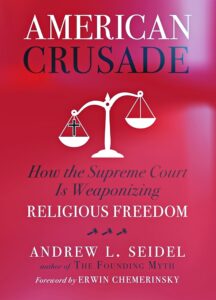
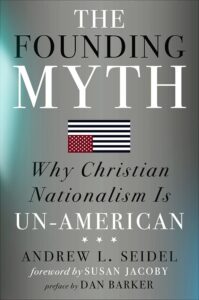
Emphasis On Christian Nationalism
Several recent developments in the United States have highlighted an increased emphasis on Christian Nationalism within government policies, raising concerns about the separation of church and state and its impact on daily life.
This heretical form of Christianity is being forced upon us. It is super masculine, misogynist, nationalist, homophobic, white, supremacist, and racist. It is Christian in name only. The religion of egalitarian Jesus, who preached the values of the sermon on the mount, is not their religion. The Christian nationalists want to use the power of the state to impose on us their brand of Christianity. It is not the solidarity of humankind.
In February 2025, Donald Trump signed an executive order creating the White House Faith Office. This office aims to strengthen partnerships between the federal government and faith-based organizations, enabling them to compete for federal funding and collaborate on initiatives addressing social issues. The order underscores the administration’s recognition of the significant role these organizations play in community development.
Also in February 2025, Trump announced the formation of a task force dedicated to eliminating what he termed “anti-Christian bias” within the federal government. This initiative involves a comprehensive review of federal agencies to identify and address policies or practices perceived as discriminatory against Christians. The task force’s mandate includes ensuring that faith-based organizations receive equal treatment in government programs and services.
The appointment of Russell Vought as the head of the Office of Management and Budget has raised concerns among critics. Vought, known for his Christian nationalist views, has been instrumental in shaping policies that integrate Christian principles into governance. His influence is evident in initiatives that seek to align federal policies with specific religious values, potentially affecting the secular nature of government operations.
Guest – Andrew Seidel, author and attorney who’s defended the First Amendment for more than a decade, both in and out of court. Andrew dedicated his career to challenging religious privilege and battling Christian Nationalism.
—-

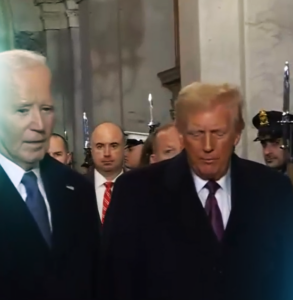
A Golden Age of Oligarchs
Last month, Elon Musk said something about the Trump election with which we agree. He said “this was no ordinary victory. This was a fork in the road of human civilization.“ How true. Now our democracy, however, restricted by class and race, is in the process of being replaced by a super wealthy oligarchy. There are more than 800 billionaires in the United States. They are now in the saddle.
The Citizens United Supreme Court case of 2010 eased the process. Trump was elected with money, truly big money from 10 people. Elon Musk alone contributed $277 million. Biden himself in his farewell address warned of the takeover by an oligarchy. Echoing President Eisenhower‘s famous warning of a military industrial complex, Biden talked about the “tech industrial complex.“
This second Trump term will not be like the first. It won’t be incoherent and chaotic. This has been guaranteed by the Heritage Foundation which wrote a 920 page playbook for dismantling democracy.
The process has begun with Trump pulling out of the Paris Climate Accord and calling for more drilling. “Drill baby drill” is his mantra. This is a race towards human extinction. On January 21st he pulled out of the World Health Organization. The day he was sworn in he pardoned some 1500 people who participated, and even lead the January 6th insurrection. This is a greenlight for fascist mobs who now must feel they can get away with anything.
The Democratic Party has greased the skids for this transition. It cannot be relied on for the defense of the American people. Biden and Harris after accurately calling Trump a fascist to the last few weeks of the election, then did an about face welcoming him in to the White House saying they would cooperate with him and praising the peaceful transition, a transition that Trump if he lost promised not to abide by.
Guest – Chris Hedges, the journalist and author spent two decades as a foreign correspondent serving as the Middle East Bureau Chief and Balkan Bureau Chief for The New York Times where he was awarded the Pulitzer Prize. He is the author of 14 books including War is a Force That Gives us Meaning, Days of Destruction, Days of Revolt, which he co-wrote with the cartoonist Joe Sacco, and The Death of the Liberal Class. Chris’ forthcoming book is titled A Genocide Foretold.

————————————-
Academic Freedom, Civil Liberties, Civil Rights, Executive Branch Law Breaking, Human Rights
Podcast: Play in new window | Download
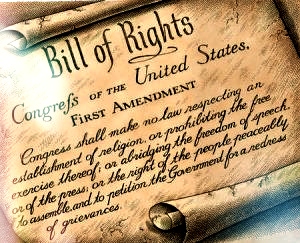
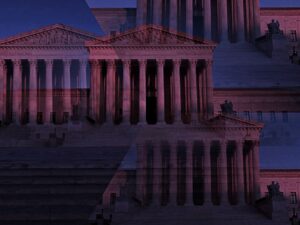
Lawyers Defending American Democracy
The early days of the Trump administration have ushered in a series of assertive executive orders that are rapidly reshaping the federal landscape. While new administrations typically bring change, most Americans expect such shifts to respect the rule of law. Project 2025, however, diverges from legal norms, challenging birthright citizenship, dismantling crucial federal agencies like USAID without congressional approval, and attempting to criminalize support for lawful diversity and anti-bias initiatives.
Today’s guest is Lauren Stiller Rikleen, Executive Director of Lawyers Defending American Democracy. She argues that the media has inadequately covered the full scope of Project 2025’s goals. While the boldness of presidential actions has shocked many, these plans were outlined in the Project’s Mandate for Leadership. Trump’s executive orders threaten protections for workers and marginalized communities and undermine checks and balances that ensure government accountability.
Through these executive orders, the administration is unabashedly aligning the government with conservative ideals at the expense of civil rights and environmental protections. Presidential power is being centralized while erasing decades of legal safeguards against discrimination and environmental harm.
Guest – Lauren Stiller Rikleen is author of four books and editor of the 2023 anthology Her Honor—Stories of Challenge and Triumph from Women Judges, she is also an active member of the American Bar Association. She serves as vice-chair of the Advisory Commission to the Task Force on American Democracy, vice-chair of the Advisory Council to the DEI Center, and co-chair of the Women’s Caucus.
—-

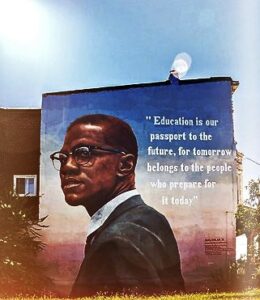
Trump Executive Orders Dismantle DEI, Critical Race Theory
We are experiencing Donald Trump has launched his second term as President with an avalanche of Executive Orders as part of a calculated Shock and Awe strategy to take over the federal government in defiance of the Constitution, Congress, and maybe even the Supreme Court. One of the most dangerous aspects of that scheme is his plan to dismantle well-established programs and policies that encourage Diversity, Equity, and Inclusion, known as DEI, in American society in general and in education in particular; to ban the teaching of Critical Race Theory; and to either totally eliminate the Department of Education or at a minimum strip it of its key functions and funding.
The Department of Education was established by an Act Congress in 1979, signed by President Jimmy Carter. The Department of Education says its elementary and secondary programs serve more than 50 million students in about 98,000 public schools and 32,000 private schools. It also provides grants, loans, and work-study assistance to more than 12 million post-secondary students.
According to Becky Pringle, the president of the National Education Association, Trump’s expected Executive Order to abolish the Department of Education, if it becomes a reality, “would steal resources from the most vulnerable students, explode class sizes, cut job training programs, make higher ed more expensive and out of reach for middle class families, take away special education services for students with disabilities, and gut student civil rights protections.”
A bill has been introduced in the House of Representatives to eliminate the Department of Education, though since it would require 60 votes in the U.S. Senate to do so, it is unlikely to pass.
Christopher Rufo, a Senior Fellow at the conservative Manhattan Institute, writing in its publication, City Journal, spells out rather clearly why the Right is so determined to shut the department down. After pointing out the areas of its work, Rufo says it engages in “ideological production, which includes an array of programs, grants and civil rights initiatives, and third-party NGO’s that create left-wing content to push on local schools.” And he refers to the Department of Education over-all as “a hotbed of left-wing ideologies.”
Trump has yet to issue his Executive Order on this matter, but he’s already said he wants to put the Department of Education out of business, and transfer some of it duties to other departments.
And so today we spend our entire hour looking at the legality of Trump’s plans to target DEI, Critical Race Theory and the Department of Education and, if he is successful, what will be lost and what it is likely to mean for the state of education in America.
Guest – Stephen Rohde is a civil rights activist, author, and constitutional scholar. He practiced civil rights law for almost 50 years. He currently serves as chair of the Interfaith Communities United for Justice and Peace (aka ICUJP), which was formed in the wake of 9/11 for the purpose of organizing faith-based communities to call for an end to war and violence. He is also a past President of the ACLU Foundation of Southern California, and past Chair of Death Penalty Focus, and Bend the Arc: A Jewish Partnership for Justice. Despite that long list of affiliations, today he’s not speaking on behalf of any of those organizations.

——————-
Civil Liberties, Civil Rights, Human Rights, Truth to Power
Podcast: Play in new window | Download
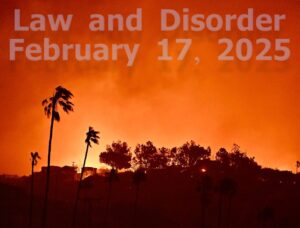

Dismantling Progress, Deportation And Sanctuary Cities
On Law and Disorder, we’re celebrating Black History Month. We remember and honor the ongoing struggle of Black Americans and their allies to achieve equality, justice and fairness. But the forces of white supremacy have opposed that struggle at every turn. Today, the President of the United States and his enablers are at the forefront of not only dismantling the progress that has been made but creating new obstacles to impede further progress.
On day one, Trump claimed to end birthright citizenship and he terminated Diversity, Equity and Inclusion policies and programs throughout the federal government and in companies with federal contracts. He has stepped up deportations and is sending undocumented immigrants to the infamous detention center in Guantanamo Bay, Cuba. He canceled flights for refugees already approved to travel to the United States. He has threatened to prosecute local officials in Sanctuary Cities who refuse to cooperate with ICE agents. He froze federal grants and loans designed to support low income food, housing, and educational programs. All told, in the first 18 days, he issued over 65 Execution Orders or policy statements that threaten to tear apart the fabric of American society that has been striving – haltering at times – to achieve Equality and Justice for All.
Meanwhile, the recent devastating fires in Los Angeles have destroyed entire communities in the wealthy Pacific Palisades and in less wealthy Altadena, which has a special place in the history of African Americans in Los Angeles. Will the ambitious plans to rebuild these destroyed areas favor the rich over the poor, as we saw after Katrina and so many natural and man-made disasters?
Guest – Sheila Miller serves as Director of Race, Equity & Inclusion at the National Immigration Law Center and leads the implementation of Diversity, Equity, Inclusion, Justice and Belonging (DEIBJ) initiatives. She is responsible for creating, training, managing, and optimizing all efforts to make the NILC internal workplace a fairer, more equitable environment for all employees. She partners with leaders across the organization to ensure progress toward NILCs vision of being a race-forward, fully inclusive organization.
—-

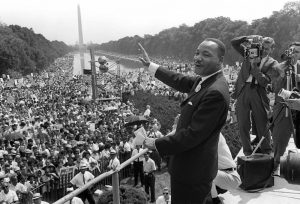
44 States Set to Remove Critical Race Theory
Forty four states have introduced bills or taken other steps that would restrict teaching critical race theory, or limit how teachers can discuss racism and sexism. Critical race theory is an academic and legal framework that recognizes systemic racism in the United States. It challenges the idea that racism is abnormal or that it’s just a result of individual bias.
In late January, the Department of Defense issued a memo removing the recognition of history months, such as Black History Month, Women’s History Month, and Pride Month, from its official observances, claiming such months played a divisive role in American society.
But we in the National Lawyers Guild still strongly believe such months can play a vital role in educating our diverse population on matters often given little or no attention in our lives or in our public schools around the nation.
So as far as we are concerned, this month, the month of February is still Black History Month. And, we’ve invited two guests who believe as we do to join us here on The Lawyers Guild Show today to discuss racism in America, both historic and present-day. That, in turn, means we will be examining critical race theory and consider why White America has so much fear of it being taught in our public schools.
Guests – Sharon Kyle and Dick Price, respectively publisher and editor of the LA Progressive, a daily on-line magazine widely read throughout the greater Los Angeles area, and beyond. Sharon Klye is Black, Dick Price, who happens to be her husband, is White.

———————————
Civil Liberties, Civil Rights, Gaza, Human Rights, Illegal Immigration
Podcast: Play in new window | Download


Trump Executive Orders Erasing Protections For Underclass
This is the first week of Black History Month, and we at the Law and Disorder show are eager to celebrate it. But that’s not what’s happening in the Trump administration. The Defense Department under the headline “Identity Months Dead at DoD” has eliminated various Heritage Months, including Black History Month. Meanwhile, the Defense Intelligence Agency has “paused” the recognition of Black History Month.
Even more alarming is Trump’s Executive Order eliminating the use of D.E.I., that is “diversity, equity and inclusion”, as factors to be considered by all federal agencies when hiring their employees. Trump claims the elimination of DEI will result in America becoming a “colorblind and merit-based society.” However, DEI programs do not hire less qualified applicants for jobs, they simply require governmental agencies to seek out well-qualified minority and women candidates for all job openings. That is, to remove any discriminatory barriers that result in hiring fewer well-qualified women and minorities, and the disabled, in their work force. Margareet Huang, the Southern Poverty Law Center’s president and chief executive got it right when she said, “His (Trump’s) attacks on diversity, equity and inclusion—are just a sanitized substitute for the racist comments that can no longer be spoken openly.”
Meanwhile, and closely related to Trump’s attack on DEI, are his multifaceted attacks on immigrants and in particular those who join in public protests against his policies, such as his policies on Israel and Palestine.
For many years, and especially after October 7, 2023, as a way to stifle demands for Palestinian human rights and sovereignty, there has been a concerted effort to conflate criticism of the Israeli government with anti-Semitism. Now Trump has upped the ante. On January 29, he pledged to deport non-citizen college students, and others, who take part in pro-Palestinian protests, and promising “immediate action” by his Justice Department to prosecute such protesters. He issued a warning to all the resident immigrants who join in what he called “the pro-jihadist protests,” warning that “we will find you, and we will deport you.” He threatened to cancel the foreign student visas of what he labeled “Hamas sympathizers on college campuses, which have been infested with radicalism like never before.”
To implement these sweeping threats, Trump issued an Executive Order titled “Additional Measures to Combat Anti-Semitism.” Among other things, the order reaffirms Executive Order 13899 that Trump issued on December 11, 2019, during his first term. It required all executive departments and agencies charged with enforcing anti-discrimination laws to consider the highly controversial “working definition” of anti-Semitism adopted in 2016 by the International Holocaust Remembrance Alliance (IHRA), including eleven “Examples of Anti-Semitism.”
On May 1, 2024, the House of Representatives on a 320-91 bipartisan vote, passed the Antisemitism Awareness Act. It would enshrine the very same flawed IHRA “working definition” in federal law. It now goes before the Senate. On January 21, without even waiting for the Act to become law, Harvard University set a dangerous precedent by agreeing to adopt the IHRA definition as part of a settlement of two federal lawsuits that had accused the school of failing to do enough to prevent antisemitic discrimination.
Guest – Stephen Rohde is a civil rights activist, author, and constitutional scholar. He currently serves as chair of the Interfaith Communities United for Justice and Peace (aka ICUJP), and he is also a past President of the ACLU Foundation of Southern California, and past Chair of Death Penalty Focus and Bend the Arc: A Jewish Partnership for Justice.

—————————————-
Civil Liberties, Human Rights, Human Trafficking, Illegal Immigration
Podcast: Play in new window | Download
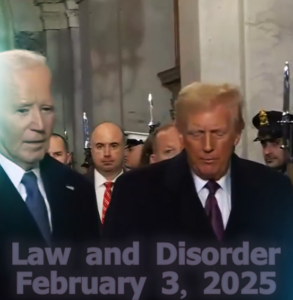

A Golden Age of Oligarchs
Last month, Elon Musk said something about the Trump election with which we agree. He said “this was no ordinary victory. This was a fork in the road of human civilization.“ How true. Now our democracy, however, restricted by class and race, is in the process of being replaced by a super wealthy oligarchy. There are more than 800 billionaires in the United States. They are now in the saddle.
The Citizens United Supreme Court case of 2010 eased the process. Trump was elected with money, truly big money from 10 people. Elon Musk alone contributed $277 million. Biden himself in his farewell address warned of the takeover by an oligarchy. Echoing President Eisenhower‘s famous warning of a military industrial complex, Biden talked about the “tech industrial complex.“
This second Trump term will not be like the first. It won’t be incoherent and chaotic. This has been guaranteed by the Heritage Foundation which wrote a 920 page playbook for dismantling democracy.
The process has begun with Trump pulling out of the Paris Climate Accord and calling for more drilling. “Drill baby drill” is his mantra. This is a race towards human extinction. On January 21st he pulled out of the World Health Organization. The day he was sworn in he pardoned some 1500 people who participated, and even lead the January 6th insurrection. This is a greenlight for fascist mobs who now must feel they can get away with anything.
The Democratic Party has greased the skids for this transition. It cannot be relied on for the defense of the American people. Biden and Harris after accurately calling Trump a fascist to the last few weeks of the election, then did an about face welcoming him in to the White House saying they would cooperate with him and praising the peaceful transition, a transition that Trump if he lost promised not to abide by.
Guest – Chris Hedges, the journalist and author spent two decades as a foreign correspondent serving as the Middle East Bureau Chief and Balkan Bureau Chief for The New York Times where he was awarded the Pulitzer Prize. He is the author of 14 books including War is a Force That Gives us Meaning, Days of Destruction, Days of Revolt, which he co-wrote with the cartoonist Joe Sacco, and The Death of the Liberal Class. Chris’ forthcoming book is titled A Genocide Foretold.
—-
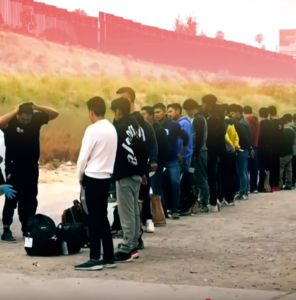

Resistance Continues As Mass Deportation Plan Ramps Up
Well, it’s begun. Trump’s plan to deport millions of immigrants back to their home countries, or if need be, elsewhere, began in earnest in Chicago last week, and in other places, as well. A relatively small number were rounded up, including a few U.S. citizens. I guess they just didn’t look “American” enough to escape an initial arrest. An even larger number of immigrants left voluntarily, too frightened to stay. Chicago, being a “sanctuary city” its local policing officials refused to help in the round ups and expulsions. That of course, brought threats from the Trump Administration that they, and any others in the country who did not fully cooperate with federal ICE officials and cops during such raids, might be prosecuted.
Of course, Trump and his loyal sycophants were quick to take to the airwaves in defense of the round up with their bogus charges that immigrants are criminals and are taking jobs from real Americans. Never mind that the crime rate for undocumented immigrants is much lower than for us “real Americans,” and that the vast majority of the jobs they do are mainly jobs most Americans simply will not do.
So, to review the new deportation plans of the Trump Administration, its methods of operation, its likely costs, its likely success rate, and the threats of prosecuting anyone who interferes with the effort, or in the case of local officials who won’t cooperate with it, we are pleased to have with us today a leading expert on all matters having to do with the plight of immigrants in America and the new effort to deport millions of them,
Guest – attorney Victor Narro is a nationally known expert on immigrant rights and low-wage workers, and has been involved in these efforts for over 40 years now. He is currently a Project Director for the UCLA Labor Center and Core Faculty for the UCLA Department of Labor Studies, where he teaches classes that focus on immigrant rights, social justice and the labor movement. And Victor Narro is also Core Faculty for the Public Interest Law Program at UCLA School of Law. Victor Narro’s latest book is The Activist Spirit—Towards a Radical Solidarity, published by Hard Ball Press.

———————-




















